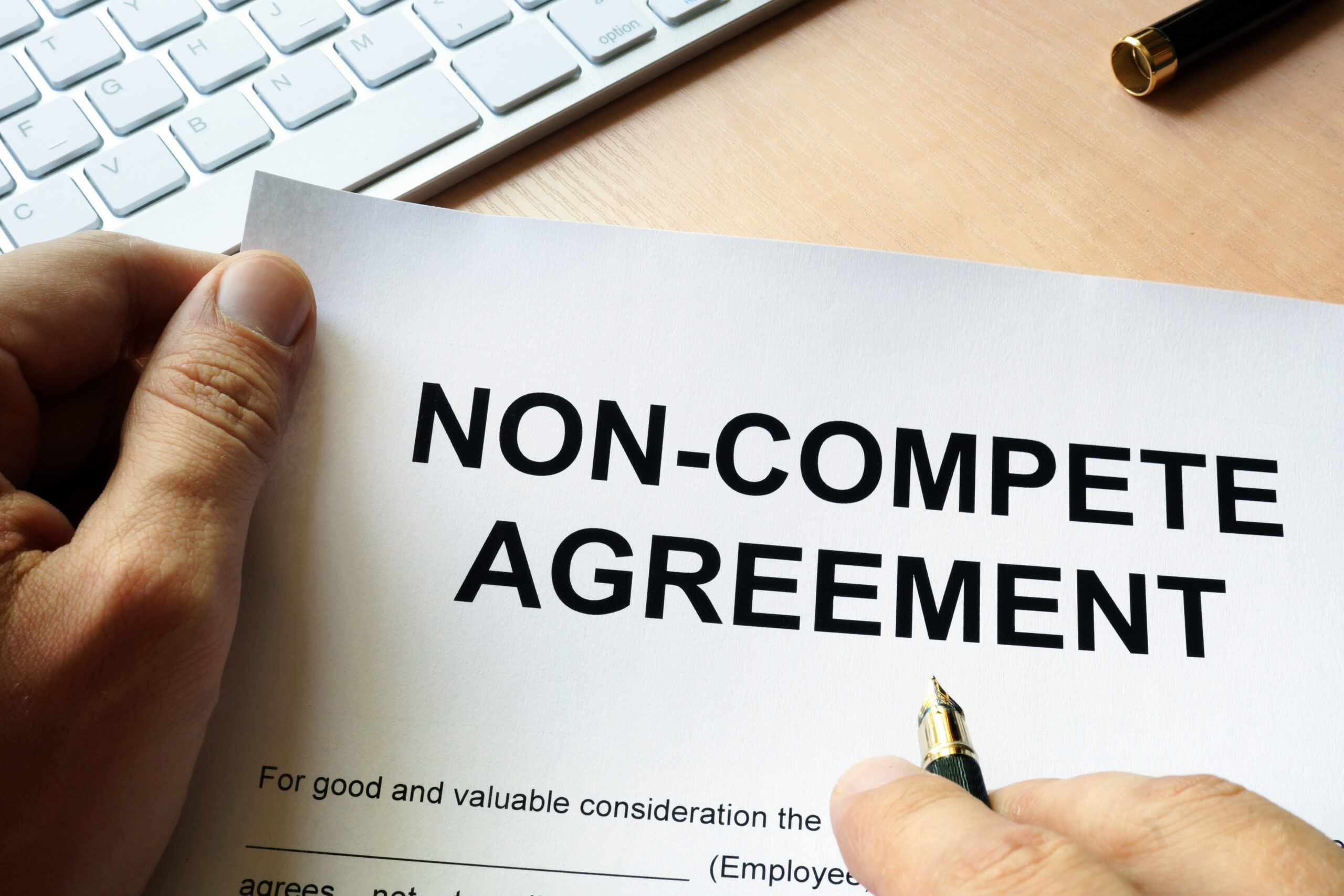When selling a business in New Jersey, noncompete agreements are a crucial element to consider. These legal documents can help protect the sold business’s proprietary interests by restricting the seller’s ability to start a new, competing business within a certain geographical area and time frame. Understanding how to effectively negotiate and implement noncompete agreements is vital for both protecting your business and ensuring a fair transaction. This article provides New Jersey business owners with practical advice on handling noncompete clauses during business sales.

Understanding Noncompete Agreements in New Jersey
What is a Noncompete Agreement?
A noncompete agreement, also known as a covenant not to compete, is a contract where one party (typically the seller) agrees not to enter into or start a similar profession or trade in competition against another party (the buyer). For business owners selling their companies, signing a noncompete agreement can be a key requirement from the buyer to protect the business’s existing customer base and confidential information.
Why are Noncompete Agreements Used?
In business sales, noncompete agreements prevent sellers from immediately competing against the buyer, thereby safeguarding the business’s value. These agreements ensure that the buyer retains the full benefits of the acquired business, including its goodwill, without risk of competition from the former owner.
Tips for Negotiating Noncompete Agreements in New Jersey
1. Understand the Legal Boundaries
New Jersey law requires that noncompete agreements be reasonable in scope, geography, and duration. They must protect the legitimate interests of the business, such as trade secrets or customer relations, and cannot impose undue hardship on the seller. Before negotiating, understand what is legally enforceable in New Jersey to ensure the agreement stands up in court if challenged.
2. Determine Reasonable Duration and Scope
The terms of noncompete agreements can vary widely, but they should be as narrow as possible while still protecting the business’s interests. Typically, noncompete durations in business sales can range from one to three years, depending on the industry and the seller’s role in the company. Geographic limitations should also be reasonable and typically only cover the area where the business operates and competes.
3. Negotiate Compensation
If a noncompete agreement restricts your ability to earn a living, it is reasonable to request adequate compensation for agreeing to these restrictions. This compensation can be included as part of the overall sale price of the business or as a separate payment structure. Ensure the compensation reflects the potential income loss during the noncompete period.
4. Clarify Permitted Activities
Not all business activities may pose a direct competition threat. Clearly define what specific activities are restricted and which are permitted. For instance, you might be barred from opening a similar business but allowed to work in the same industry in a different capacity or location.
5. Legal Review Before Signing
Always have a legal expert review any noncompete agreement to ensure it’s fair, reasonable, and legally binding. A lawyer can also help negotiate better terms and identify any clauses that might unduly limit your professional freedom.
Best Practices for Enforcing Noncompete Agreements
1. Transparency and Fairness
Be transparent with potential buyers about your intentions post-sale. A fair and clearly communicated noncompete agreement helps maintain good relations and trust between both parties, which is crucial for a smooth transition.
2. Document Everything
Ensure all negotiations and agreed-upon terms are well-documented. Having a solid paper trail can prevent misunderstandings and provide clear evidence in case of legal disputes.
3. Monitor Compliance
Once the business sale and noncompete agreement are in place, both parties should monitor compliance with the terms. This can involve regular check-ins and updates to confirm that both sides adhere to their commitments.
Noncompete agreements are a significant aspect of business transactions in New Jersey. They must balance protecting the business’s interests with fairness to the seller. By understanding legal standards, negotiating reasonable terms, and ensuring proper legal review, New Jersey business owners can effectively manage noncompete agreements to secure a successful and equitable business sale.
Are you preparing to sell your business in New Jersey? Consider consulting with a legal expert specializing in business transactions and noncompete agreements to ensure your interests are well-protected throughout the sale process.
FAQs
What is a noncompete agreement in the context of a business sale?
A noncompete agreement is a legal contract in which the seller of a business agrees not to start a new, competing business within a certain geographical area and during a specified time period after the sale. This helps protect the buyer’s investment in the purchased business by reducing direct competition.
Why are noncompete agreements important in business sales?
Noncompete agreements protect the buyer’s investment by ensuring that the seller does not use intimate knowledge of the sold business to compete against it. This protection helps maintain the value of the business, including its customer base and trade secrets.
What makes a noncompete agreement enforceable in New Jersey?
In New Jersey, for a noncompete agreement to be enforceable, it must be reasonable in scope, duration, and geographic limitations. It should protect a legitimate business interest, such as trade secrets or customer relationships, and cannot impose undue hardship on the seller.
How long do noncompete agreements typically last?
The duration of noncompete agreements can vary but generally ranges from one to three years, depending on the specific circumstances of the business sale and the industry in question. The key is that the duration should be reasonable enough to protect the buyer’s interests without unduly restricting the seller.
Can I negotiate the terms of a noncompete agreement?
Yes, terms of a noncompete agreement are negotiable. Sellers can negotiate the duration, geographic scope, and what specific activities are restricted. They can also negotiate compensation for the restrictions imposed by the agreement. It’s advisable to have these negotiations reviewed by a lawyer to ensure the terms are legally sound and fair.
Related Posts
Closing the Sale of Your Business: A Comprehensive Guide for New Jersey Business Owners
Legal Insights – Critical Considerations for Selling Your Business in New Jersey